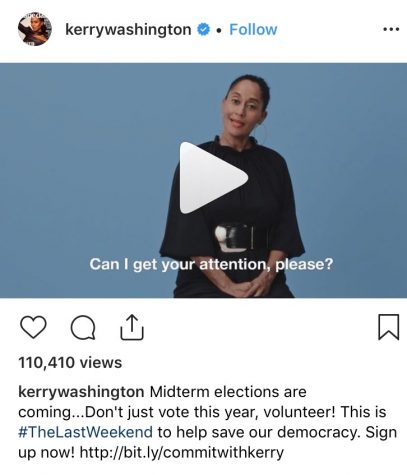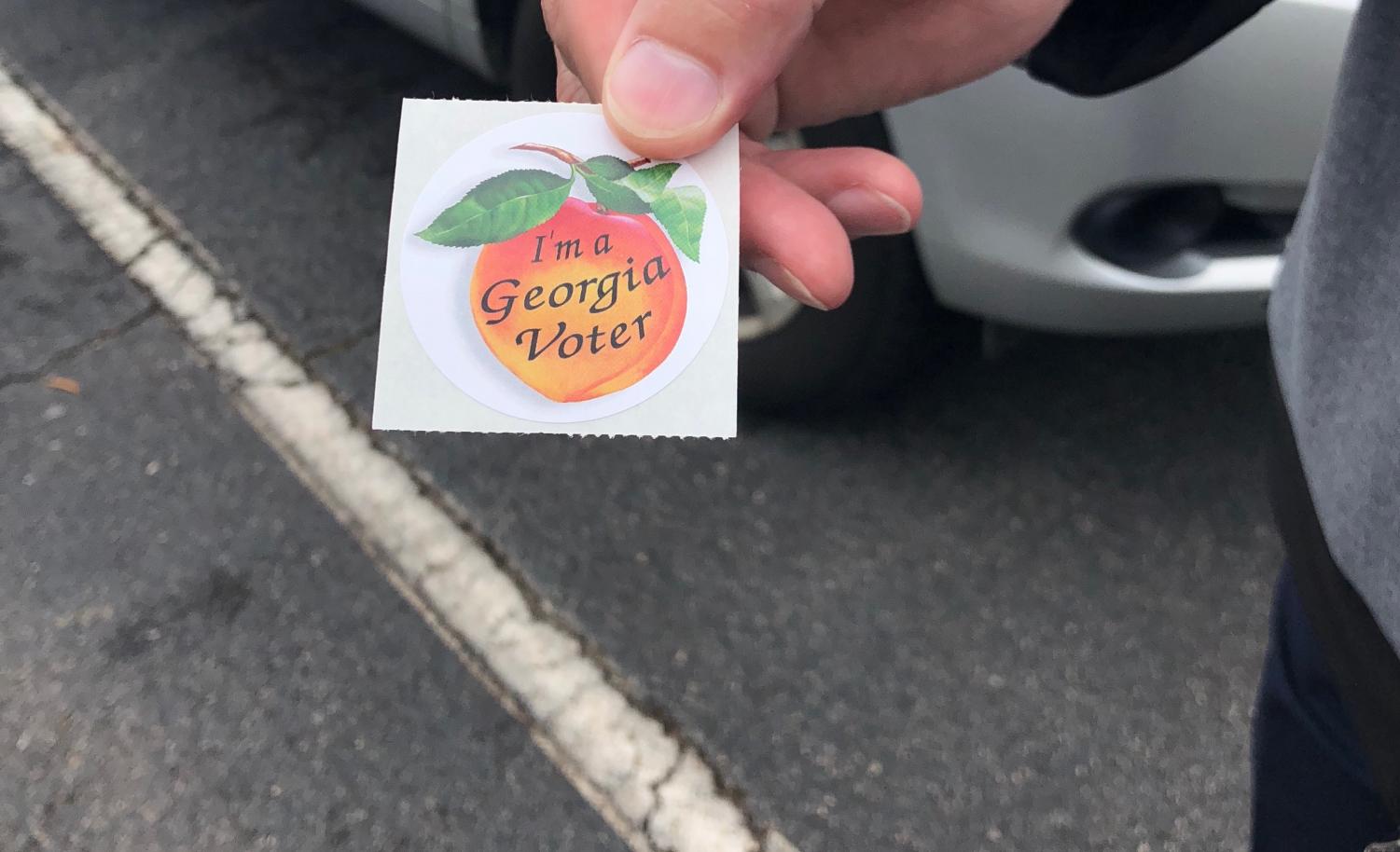Point-Counterpoint: Media Influencing the masses
November 2, 2018
A sea of people and a wave of posts flood the media; each utilizing their right to express themselves, protected by the First Amendment. Thousands of voices come together as a choir of opinions, shaping the world-views. With the increase of access to media, America can stay updated to breaking news in the political world. It provides an opportunity for opinions to be displayed on a wider, more diverse platform. However, the effect of media use can impact a voter.
Media skewing opinions
On this wide expanse of a network through newspapers, websites, television, social media, and other platforms, only the loudest voices can be heard. Those with the largest amount of followers are the ones that drown out the voices of others around them. Politicians who have the most money or greater background are heard over the humbler protester seeking change.
The media today provides an audience for political powers to influence the masses. Communication can be easily spread at a rapid pace where people are bombarded by opinions and exposed to the news in seconds. Access to more technology means a greater audience for those in power to exert their views on the public which shapes what the public believes. Influencing the media means using it to one’s advantage to skew opinions.
With an increased use of social media platforms, several users have gained a large following and receive the title as “influencers”. These social media “influencers” can spread their opinions on a grander scale and can endorse political opinions and views which results in their followers adapting suit. For example, Kerry Washington posted a video encouraging over 100,000 viewers to vote to “save democracy”; her influence reaches millions of others as her videos are reposted, liked, shared, and promoted. Her values will be spread to countless others. The more popularity a person has, whether it’s by the number of followers or a larger presence under the public eye, the more standing that person has in the media, and ultimately, the more influence they hold.
 Screenshot was taken by Sadie Rawlings
Screenshot was taken by Sadie Rawlings
An example from this upcoming midterm election, singer Taylor Swift posted an Instagram picture encouraging her 112 million followers to vote. She encouraged her followers to support the person who will uphold “all human rights”. Although she disabled the comments on the picture, her fans will be able to read her political views which will sway their own personal opinion.
This quick communication can have consequences like the spreading of false information and promoting propaganda. In the media, sources are falsely credited or edited; anyone’s words can become twisted by one who wants to portray a certain belief. A person’s voice can be changed by inaccurately portraying them in the media. Those who participate in the media’s audience are susceptible to this propaganda and can be misleading.
“The media has always shaped the opinion of the public whether the general population admits it or not,” junior Ayesha Basara said.”The power of media has not only strengthened over the past few years but has also laid out facts about certain political agendas that have been concealed from the nation.”
With the communication of news, voters are subjected to the knowledge that is presented to them through the media. Voices are altered. Opinions are changed. Politicians and influencers will use their power to skew the opinions of the public to suit their needs which leaves voters desperate for the truth. Who is the voter supposed to trust if they can no longer rely on the media?
Feel free to contact her at @SadieRBirdFeed or [email protected]
Point-Counterpoint: Media Influencing the masses
Our founding fathers wished to establish a country that protects and enforces the freedoms of its citizens. Created in order to do just that, the first amendment allows the freedom of the press and differing beliefs. However, since the creation of the first form of media, politicians and other high political figures have impacted those beliefs. This is due to the easy accessibility of media. Media is used to express ideas and opinions, and it can also be an informative source when it comes to political elections.
According to medium.com, 15% of information that affected how and when people to vote was from media sources such as magazines and newspapers. Journalists have the job of reporting on current events, especially on political candidates during the election season. Positive media encourages voters to express their opinions and influences others to actually participate in elections. 63% of media influence in the 2016 election came directly from the candidates themselves.
Throughout history, elections have been the prime method of displaying opinions for large groups of individuals. People form these opinions based off of what a candidate directly says and what the media perceives. Looking at both sides of the media develops opinions and develop an educated idea of which candidate has the same viewpoint as voters. Social media was designed to create an interactive environment for those who choose to participate. One of the popular parts of social media is how it allows every person to openly express their opinions and political viewpoints.
When it comes to media in the political field, pewinternet.org, 40% of the US population share their political views on Twitter and 65% display their views on Facebook. Throughout the United States, opinions are shared on social media sources, and media in general. This overwhelming influence expressed through internet sources allows for an opinion to be made. As teens and the rest of the population search through reliable sources, an opinion forms in the mind. Without the media, this would not have the ability to occur. Celebrities, along with news sites, help create this perspective and view by prompting their fans to join the ballots. A positive influence is born as more and more credibility is built, allowing an open mind.
“Looking at the media displayed at my fingertips gives me a good way to stay updated with candidates and their promoting,” says junior Mckenna Spraetz. “Very few people these days are not connected to the internet, especially those in America. Because everyone uses social media and other media connections, it is easier to stay on top of who is voting and the opinions of those around me.”
Through the technology that most people possess, any form of media can influence individuals, schools, and communities. The media that surrounds our daily lives opens various opinions and perspectives on major issues. Without the nationwide connection, we have today, we would not be connected to the candidates we have to vote from.
